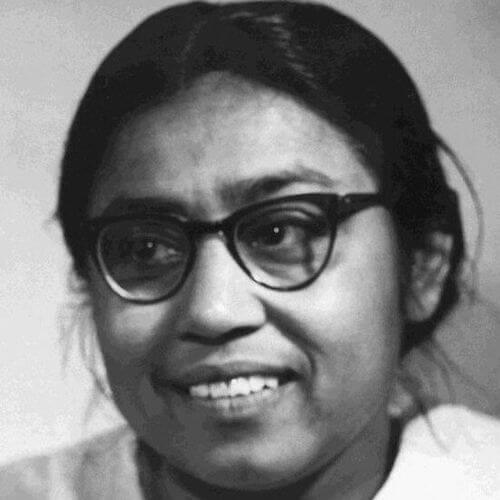Early Life:
Sucheta Kripalani was born in Ambala (Punjab) in June 1908. She completed her education at Indraprastha College, Delhi University. Kripalani began her professional career as a teacher of Constitutional History at Banaras Hindu University till 1939. In 1936, she married Acharya Kripalani, a Congress party member and a prominent freedom fighter. She became a member of the Congress Party in 1938 and served as the Secretary, for one and half years, to the Foreign Department and Women’s Section.
Role in India’s Independence Movement:
Kripalani actively participated in the Indian independence movement in the 1940s. That included her involvement in the 1942 Quit India movement- she evaded arrest from the Government, although she was eventually arrested in 1944 and was detained for a year.
Contribution to Constitution Making:
In 1946, Kripalani was elected to the Constituent Assembly from the United Provinces. She was a member of the Flag Presentation Committee, which presented the first Indian Flag before the Constituent Assembly.
Later Contributions:
As a staunch Gandhian, she accompanied Gandhi to Bengal during the Indian partition riots. Kripalani played a crucial role in the rehabilitation of refugees during the Partition of India: she served as a Secretary to the Relief and Rehabilitation Committee set up by the Congress Party.
Kripalani was one of the first few women parliamentarians in independent India. She was the member of Provincial Parliament (1950-52); First Lok Sabha (1952-56) and Second Lok Sabha (1957-62).
She had a successful political career in Uttar Pradesh and held important profiles including Member of Uttar Pradesh Legislative Assembly (1943-50) and Minister of Labour, Community Development and Industry, (1960-1963). Kripalani was elected on the Congress party ticket to become Chief Minister of the state, giving her the distinction of being the first female Chief Minister of an Indian State. She served the office from October 1963 to March 1967.
Kripalani was a part of several delegations to foreign countries and organizations. She played a key role in Parliamentary Delegation to Turkey (1954); International Labour Organization (1961), United Nations General Assembly (1949); and the United Nations Seminar on Civic Responsibility and Increased Participation of Asian Women in Public Life (1956). She passed away in 1974.
Key Writings:
Kripalani authored Sucheta: An Unfinished Autobiography which recounts her life up to 1947.
She did not make any intervention in the Assembly.

